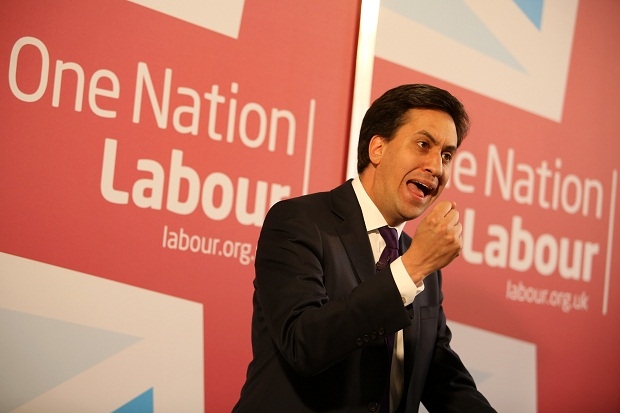‘We are going to see how thick their rectory walls are, whether they like the flaring at the end of the drive!’ Said Michael Fallon in jest at the expense of supporters of fracking in the Home Counties. As it happens, our very own Charles Moore lives in a rectory in East Sussex. He wrote this in the Spectator a few weeks back:
‘Another great advance for the environment is shale gas, though for some reason Greens do not see it that way. It will make us — and has already made America — far less dependent on high carbon-emitting sources of energy. It is lucky for those trying to extract it in this country that it is in places like Ellesmere Port and Blackpool where there are not many spoilt, rich people to complain about damage to the landscape. The problem is that successful extraction requires quite a lot of ‘frack pads’ each covering an area larger than a football pitch. These attract little attention in enormous, dull, empty areas of the United States, and will probably be accepted in our impoverished north-west. But there is alleged to be lots more of the stuff under the Sussex Weald, which is where, as it happens, I live. So I face the unpleasant prospect of having to be true to my beliefs.’
Those rectory walls look pretty thick to me.
There are, of course, voluble anti-fracking campaigns across the country, and we can expect more as exploratory drilling accelerates. The campaigners are not necessarily ‘eco-loons’ or ‘celebrity agitators’ – as the Battle of Balcombe would suggest, perhaps to that community’s lasting detriment. Ordinary residents across the country fear that they stand to lose more than they will gain through shale exploitation. These campaigns know that there is strength in numbers, so efforts are being made to turn piecemeal activism into a national movement.
The chief of executive of Cuadrilla, Francis Egan, has a piece in the Mail on Sunday in which he tries to set the record straight about what his company is doing at Balcombe, and to dispel environmental concerns about drilling technologies. It’s an excellent piece; even though I think that he has misunderstood the fear of long term pollution of aquifers: farmers I spoke to while researching this piece said that vital aquifers may be polluted if the well casing and head cracks or corrodes over time, as can happen through bad luck or neglect.
Much of Egan’s good work is undone by the Observer, which has published a government document sent to local authorities. It says:
‘Mineral planning authorities should not consider demand for, or consider alternatives to, oil and gas resources when determining planning applications. Government energy policy makes it clear that energy supplies should come from a variety of sources. Mineral extraction is essential to local and national economies … minerals planning authorities should give great weight to the benefits of minerals extraction, including to the economy, when determining planning applications.’
These words will add to the impression among campaigners that the government is leaning on local authorities to approve exploratory drilling applications, which is the sort of thing that a tribune of the people like Nigel Farage might describe as ‘un-British’. Aside from local authorities, national park authorities in the South Downs, the Peak District and so on will make these planning decisions on occasions, because that’s where much of the shale is thought to be. Strange duties are required of national parks. For instance the South Downs authority must ‘conserve and enhance the natural beauty, wildlife and cultural heritage of the area’ and ‘seek to foster the social wellbeing of the communities within the park’. Cuadrilla et al must convince communities and park planning officers that they will not be industrialising the countryside – a task undertaken by Egan in the Mail, contradicting Charles Moore’s observation about ‘frack pods’ above.
None of the above takes in the obvious geo-political argument: shale would reduce our reliance on Vladimir Putin and the House of Saud, and therefore weaken those regimes’ ability to damage western economies. And, in theory at least, it will diminish our need to concern ourselves with their internal affairs. Irwin Stelzer makes the case in the Sunday Times, while also recognising that the present row in Britain is about ‘the problem of compensating the people who are adversely affected by fracking’ (I wonder what Francis Egan makes of that statement).
Stelzer’s compensation question leads me to Ed Miliband, who has been quiet about this burning issue of the summer – a sign that his present travails are serious. Miliband is at his best when he attacks corporatism – and the Tories’ closeness to big money. He has spoken about making the capitalist system work for communities and the ‘squeezed middle’, not just executives and shareholders, and made some headway in the polls for a time. If shale is ‘game-changing’, it will yield massive profits for the few companies and people who invest in it. This is an opportunity for Ed Miliband to start talking and stop drifting. He may not get a better one this parliament.






Comments